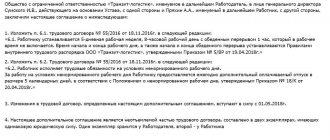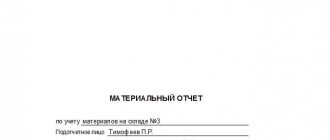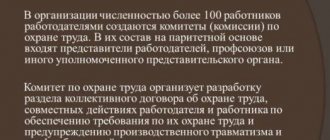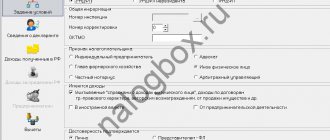How to draw up a vacation policy in an organization
Each business entity has the right to develop local regulations at its enterprise on the basis of current regulatory documents in order to specify the issues of regulating labor relations with its employees. Such acts include, in particular, the provision on vacations, on the basis of which the rest periods required for employees are provided.
In what cases is it necessary to draw up a vacation clause?
There are local regulations of the enterprise that must be present and optional ones. The latter also includes the provision on vacations. Each company can develop it as they wish.
The norms of this document are considered, as a rule, in other acts, for example, in the Collective Agreement, Regulations on Remuneration, etc. This situation often occurs in small enterprises.
It is still advisable to formulate a vacation policy in each company. It can reflect all issues regarding the provision of additional leave, the rules of which are not established at the legislative level, but are left to the agreement of the parties.
It is this document that will allow you to resolve and avoid conflicts and disputes with company employees and supervisory authorities, since it discusses not only the types of vacations, their duration, sequence, payment and registration rules, but also describes in detail the algorithm of actions in certain situations.
Attention! Since this provision affects some issues of labor relations, it is very important that its provisions do not contradict current labor legislation and do not worsen the situation of employees.
If this is revealed, then such contradictory clauses will be considered invalid and will not be taken into account.
How to draw up a provision on bonuses for employees
It is introduced by order of the manager to ensure the legal force of the document; it is not necessary to coordinate this act with representatives of the company’s trade union.
It is necessary to familiarize all hired employees with the leave regulations. This must be done before signing an employment agreement with him.
Attention! To mark the familiarization, you can use a separate sheet, where the employee will have to put down his full name, date of the event and personal signature.
Download the vacation regulations in Word format.
What should the provision contain?
The vacation regulations are drawn up in any form, and the organization independently decides what issues need to be reflected in it. Nevertheless, the points described below should be considered in it.
Types of vacations provided, as well as their duration
The regulations may indicate the types of vacations provided to employees at a given enterprise and their standard duration. Basic annual paid leave and personal leave must be described as a minimum.
If the enterprise has special working conditions, then additional leave is also included. The duration of the vacation is indicated, which by law is 28 days according to the calendar and may be more.
Here it is necessary to carefully consider the issue of combining or using in parts the vacations provided for in these acts, as well as the procedure for paying for such time.
What documents are drawn up in each specific case? It is advisable to describe in detail the situation with leave followed by dismissal, within what time frame this is carried out, documents issued upon such termination of the contract, what guarantees exist during this period, etc.
Since additional leave can be added to the main leave, the following can be reflected:
- A procedure has been established according to which additional rest rights will be granted and when they will be a continuation of the main one.
- The procedure for calculating vacation pay. For example, vacation pay for additional leave is provided together with the calculation for the main leave or will be issued separately for the additional one.
Local regulations - what they are and the procedure for their adoption
Vacations granted to certain categories of employees
This section describes the reasons why employees can expect longer rest, as well as the duration that is established in this case.
In particular, a list of professions and categories of employees whose vacation lasts longer than usual should be indicated here, as well as how the length of service that entitles the employee to such vacation is calculated.
The procedure for granting vacations in the company
The following can be described in detail here:
- when is the vacation schedule for the coming year drawn up, what is the priority;
- which employees have benefits when determining rest time.
It is also advisable to consider situations with the transfer and extension of rest periods, and the procedure and cases of recalling employees from vacation.
The right to leave at your own expense
Here you can specify a list of documents that must be provided to the employee to apply for leave at his own expense. Since the provision of this leave is not mandatory for the employer (except in cases specified by law), you can provide documents that will confirm the need to receive vacation days at your own expense.
Procedure for approving the regulations
Unlike the provisions on wages or provisions on bonuses, the draft of this type of document does not require its approval by representatives of trade union bodies.
The document is approved by the head of the company by his order. The text of the document is prepared by the clerk or human resources specialist.
[vc_btn title=”How to draw up an order for approval of vacation regulations” style=”3d” color=”success” size=”lg” align=”center” i_align=”right” i_icon_fontawesome=”fa fa-share” css_animation=” bounceIn” add_icon=”true” link=”url:http%3A%2F%2Fkadrypro.ru%2Flna%2Fpolozhenie-ob-otpuskah%2Fprikaz-ob-utverzhdenii-polozheniya-ob-otpuskah.html||target:%20_blank| ” el_class=”font-size:22px”]
It is necessary to indicate the date from which the vacation provision comes into force (if the date is not specified, then from the moment the order is issued), and it is also advisable to appoint responsible persons who will familiarize existing and newly hired employees with this document.
Order approving the vacation regulations
After the order has been signed, on the first page of the provision you need to make an o indicating the number and date of the document by which it was put into effect. Both forms are stored together with each other, and the provision is included as an appendix to the order for its entry into force.
Attention! The order must be registered in the company's order book for its main activities.
Source: https://kadrypro.ru/lna/polozhenie-ob-otpuskah/polozhenie-ob-otpuskah.html
Maternity leave
Special vacation periods are issued for maternity leave and the birth of a baby, as well as for caring for children aged from one and a half to three years.
The decree is granted in accordance with Article 255 of the Labor Code. To receive it, the employee must present to the personnel department a medical document confirming her special status (certificate of incapacity for work). The document is issued at the 30th week of a normal singleton pregnancy or at the 28th week if we are talking about a multiple pregnancy.
Such leave implies payment of state benefits, and the employer provides the following periods for rest:
- 70 days before the upcoming birth and the same amount after a successful delivery;
- a complicated postpartum period is accompanied by the provision of 86 days for rest;
- if the birth of twins is expected, the woman receives 84 days before giving birth and another 110 days are given to her for recovery after childbirth.
During the period of caring for the baby, the mother retains both her salary and her position in accordance with Article 256 of the Labor Code. To receive such a vacation period, a woman must return from maternity leave and write a corresponding application. During the vacation period, the state establishes a benefit.
The duration of the vacation period in this case can reach three years.
Child care is included by the employer in the employee’s insurance (work) experience. She can also work part-time and still be able to receive benefits.
In addition, relatives or persons involved in caring for children (grandparents, father or guardians) are entitled to leave.
Dear readers, the information in this article may be out of date. If you want to know how to solve your specific problem,
call the phones
:
Or on the website. It's fast and free!
Holiday regulations – Enterprise Info
The vacation regulations are a local document that is adopted within a specific enterprise.
Despite the fact that the legislator has covered the relevant issue in some detail in the Labor Code of the Russian Federation, the employer has the opportunity to specify certain provisions and offer more favorable conditions to its employees.
Word of the law
In accordance with the legislation of the Russian Federation, the employee is entitled to paid leave annually. Its standard duration is 28 days. There are also special cases for granting longer leave.
All employees are entitled to annual paid leave. Employees who have worked for more than 6 months in a new place are entitled to receive it.
There are also exceptions to this rule.
What does the Labor Code of the Russian Federation say?
The right to annual leave is enshrined in Art. 122 Labor Code of the Russian Federation. This norm also defines the moment when such a right arises.
In Art. 123 of the Labor Code of the Russian Federation contains information on the order of granting leave, and 124 of the Labor Code of the Russian Federation contains questions on extending or transferring annual leave.
Also in this codified act the following points are disclosed:
- the procedure for dividing leave;
- the ability to recall an employee from vacation;
- replacing rest with monetary compensation;
- exercise of the right upon dismissal of an employee;
- procedure for granting leave;
- payment of vacation pay.
Is it necessary?
In addition to the Labor Code of the Russian Federation, issues of granting leave are regulated by the employer’s local documents, including regulations.
The publication of such a document is not mandatory. The Labor Code of the Russian Federation covers in some detail all issues related to vacations.
In what cases is it required?
It is usually adopted when the employer wants to clarify some points or expand the rights of employees compared to those specified in the Labor Code of the Russian Federation.
We remind you that if certain standards adopted at the local level worsen the situation of employees, they will be declared invalid.
For what rest periods is it compiled?
We previously talked only about annual paid leave.
However, in practice, the employee is also provided with other periods of rest, including:
- additional leave;
- study leave;
- maternity leave;
- leave without pay.
Each of them has specific reasons for provision, duration and payment procedure. The provision can be left for each of them or only for certain varieties.
Annual regular
Annual leave is provided to all employees who work on the basis of an employment contract.
What may be contained in a vacation clause:
- a special procedure for calculating the average wage, if this does not negatively affect the position of employees;
- an earlier deadline for the payment of vacation pay (according to the Labor Code of the Russian Federation - 3 days before the start of the vacation);
- providing additional compensation, etc.
Additional
Additional leave is granted to individual employees - for example, those who work irregular working hours.
Moreover, the employer, at his own request, can establish additional days of rest for employees in cases not provided for in the Labor Code of the Russian Federation.
Academic (educational)
Chapter 23 of the Labor Code of the Russian Federation defines guarantees and compensation for those employees who combine work and study. Among others, this is the provision of vacation.
Please note that educational leaves can also be without pay, as is also stated in the Labor Code of the Russian Federation.
The vacation regulations may provide for additional compensation for such employees, as well as longer rest on appropriate grounds.
For irregular working hours
An irregular working day involves providing the employee with compensation in the form of additional days of rest - by law, at least 3 days.
In practice, a company may adopt a provision that specifies a longer period.
At your own expense
Employees are provided with more than just paid rest days. In accordance with Art. 128 of the Labor Code of the Russian Federation, for a good reason, an employee may ask to be granted leave without pay.
Moreover, as a general rule, the employer has the right to issue an appropriate order. This leave is provided without fail in the cases provided for in the norm under consideration.
The vacation regulations may provide for additional situations where the employer undertakes to give the employee appropriate rest.
Decree
Maternity leave is provided to women before and after childbirth. This rest period is paid and calculated in the manner established in the Labor Code of the Russian Federation.
In the vacation regulations, the employer can establish a different duration of rest, but only if this does not negatively affect the employee’s rights.
Long rest for teaching staff
Teaching staff are entitled to extended leave, the duration of which is approved by the Government of the Russian Federation.
The Regulations may reflect the procedure for its provision, registration conditions, duration and other factors.
Holiday regulations in 2020
The vacation regulations are a local document in which the employer can provide additional rules, guarantees and responsibilities for employees.
The provision is valid within one enterprise and is mandatory for all its employees.
General rules and registration procedure
The employer’s right to accept local documents is enshrined in Art. 8 Labor Code of the Russian Federation.
The regulations on the procedure for granting vacations are drawn up as follows:
- developed by decision of the managers of the enterprise or its structural divisions;
- the performer forms the project;
- the document is signed by the manager, who begins to act after the order is issued.
The provision does not have a clear structure. Its content may vary depending on the purpose.
What information is required?
The provision must contain some mandatory details, including:
- name of company;
- name of the type of act;
- date of;
- registration number;
- place of document formation;
- approval stamp;
- text of the regulation;
- visa document approval.
Structure
So, the vacation provision may consist of the following sections:
- types of vacations and their duration;
- vacations granted to individual employees;
- the procedure for granting vacations;
- vacation payment procedure.
There is no clear structure in the law. The employer has the right to formulate the act at his own discretion.
Sample document
We present a sample document. It contains only an approximate text of this act. It may differ at different enterprises.
Leave regulations (example)
Regulations on vacations in government agencies
School leave regulations
Sample approval order
We have already mentioned that the provision is put into effect by order.
This document is issued by the head. The order determines the moment the act comes into force, as well as the person responsible for its execution.
Example of an order:
Where and for how long is it stored?
Vacation regulations are most often kept in the HR department or with the manager. A copy of this document may be located in individual departments of the enterprise.
As for the shelf life, limit points have been approved at the state level - the situation should not be destroyed for 75 years.
How and when should changes be made?
Changes should be made in two cases:
- transformation of labor legislation;
- transformation of the employer's position.
Any transformation is also accompanied by the issuance of an order. Employees must be familiar with the new edition of the document.
Nuances of drafting
We have presented general rules for drawing up regulations, as well as an approximate sample document. However, each specific case has its own nuances.
They should be taken into account when drawing up the position.
For state and municipal employees
The vacation of civil servants is regulated by legal norms adopted by the Government of the Russian Federation, as well as local authorities.
Some categories of employees have the right to apply for extended leave.
Examples of provisions for this category of workers:
Regulations on leaves of civil servants
Regulations on vacations and the procedure for their provision to municipal employees
For graduate students
In accordance with Art. 173.1 of the Labor Code of the Russian Federation, graduate students are provided with additional paid leave - 30 calendar days. Moreover, their average wages remain the same for this period.
These guarantees are approved by the Labor Code of the Russian Federation. An employer can only provide benefits, but not limit the labor rights of employees.
Example position:
Regulations on granting leaves to students and graduate students
For residents of the Far North
Residents of the Far North have the right to additional days of rest.
https://www.youtube.com/watch?v=2EOLdMNg7UI
In accordance with Art. 321 their duration is 24 calendar days. the employer may approve a larger number of rest days.
For medical workers
Certain categories of medical workers have the right to apply for additional leave. A complete list of relevant professions has been approved by the Government of the Russian Federation.
If a health worker works in harmful and dangerous conditions, then the minimum period of additional leave is 7 days. A longer period is approved by a local act.
Source:
How should the vacation regulations be drawn up?
The grounds, procedure and conditions for providing legal days off to employees are contained in the Labor Code. It does not require the employer to have a leave provision.
But the adoption of such a document will be extremely useful both for employees and for the employer himself: it can cover in detail certain issues of granting leave that are not regulated by current legislation and are left to the discretion of the parties. For example:
- rules for granting administrative leave to employees. You can specify the conditions under which the employee can count on it;
- issues regarding the provision of additional rest, the rules of which are not established at the legislative level, but are left to the agreement of the parties;
- nuances of granting study leave to employees;
- questions about combining or using parts of vacations, as well as the procedure for paying for such time;
- a list of necessary documents that an employee must provide when applying for a particular type of vacation, etc.
In addition, the vacation provision may contain answers to questions regarding vacation payments.
When drawing up a document, you should remember that its norms should not worsen the conditions for providing rest existing in labor legislation (according to Article 8 of the Labor Code of the Russian Federation). For example, when setting the duration of leave for work in hazardous conditions, an employer can provide employees with ten days instead of seven. But no less than what is provided for in Art. 117 Labor Code of the Russian Federation.
Design rules
One document can immediately address all issues related to providing employees with all types of rest. Or separate documents may be drawn up for each case. For example, an enterprise may have the following provisions:
- on annual additional paid leave;
- about leaves without pay, etc.
But most often a general document is drawn up. Its registration is the responsibility of the company's accountant and lawyer. Once the regulations are ready and approved, you can begin work on the vacation schedule, according to which employees will go on vacation.
The document should contain a header and several sections regarding the provision of various types of rest to employees.
A cap
In the header you should indicate the name of the enterprise, full name. and the employer's position and date of approval. The director's signature and seal are also placed there.
Sections
The regulation consists of several sections, a summary of which is presented below:
- "General provisions". In addition to legislative acts and regulations, this paragraph also indicates what exactly the document regulates.
- “Grounds and conditions for granting annual leave.” It lists the categories of employees available at the enterprise. It also indicates the number of days of annual rest that an employee can count on.
- “Grounds and conditions for granting annual additional paid leave.” Employees who have the right to take additional time for vacation are indicated. The order of receipt is being considered.
- “Conditions for the provision, use and procedure for registration of annual basic and additional paid leave.” The necessary data for drawing up a vacation schedule, the rules for approving the schedule and making changes to it if necessary are indicated here. The deadlines for submitting applications and the vacation itself are being specified. The conditions of use and the procedure for issuing leave of different categories are also regulated.
- "Final provisions". The date of entry into force of the local act is indicated. The document is signed by the employer and personnel department employees.
Source: https://gyroscooter-72.ru/nalogi/polozhenie-ob-otpuskah.html
Extended vacation
There are also categories that are granted an extended vacation period - these are:
- persons with disabilities - rest for thirty days;
- employees of educational institutions - they are provided with from 42 to 56 days (the duration depends on the status of the institution);
- persons under eighteen years of age - they are accrued 31 days;
- employees of municipal institutions (civilians) receive thirty days of rest;
- rescue service employees - from 30 to 40 days (duration depends on length of service);
- judges and prosecutors receive from thirty to 48 days for rest;
- persons with a doctoral degree or candidates of science - 48 and 36 days, respectively;
- persons engaged in the production of chemical weapons receive from 49 to 56 days (the duration depends on the location of the production lines).
Regulations on granting vacations
The vacation regulations are a local document that is adopted within a specific enterprise.
Despite the fact that the legislator has covered the relevant issue in some detail in the Labor Code of the Russian Federation, the employer has the opportunity to specify certain provisions and offer more favorable conditions to its employees.
Holiday regulations in 2020
The vacation regulations are a local document in which the employer can provide additional rules, guarantees and responsibilities for employees.
As we have repeatedly emphasized, this act only complements the provisions of the Labor Code of the Russian Federation. It cannot negatively affect the guarantees and rights of workers established by labor legislation.
The provision is valid within one enterprise and is mandatory for all its employees.
Administrative leave
The law also provides for the possibility of receiving an unpaid vacation period. Usually such rest is required for valid reasons.
It is drawn up on the basis of a written request from the employee, reflected in the application, and always in agreement with management:
- up to 35 days in each working year are due to WWII participants;
- pensioners who continue to work can claim two weeks of rest without pay;
- the same number of days of rest are given to family members of soldiers who died in the line of duty or as a result of injury;
- disabled people who continue to work in an organization or enterprise receive an additional 60 unpaid vacation days;
- if there is a birth of a child, a wedding or the death of a relative, up to five calendar days are provided;
- unpaid vacation days may also be provided in other cases if this is provided for by local regulations (for example, a collective agreement).
The maximum period of sick leave - find out with us!
When a pensioner is dismissed, the employer is obliged to pay him benefits like any other employee. Read more about this here.
For delayed wages, the employee is entitled to compensation. You will learn how to calculate it in this article.
Vacation regulations: sample
— Business organization — Personnel — Documents — Leave regulations: sample
Since the labor legislation of the Russian Federation presupposes the need to provide regular paid leave to company personnel, employers should have local acts to regulate the procedure for their provision. For this purpose, enterprises publish the Vacation Regulations - a local standard reflecting detailed information on the annual main and additional vacation.
Purpose of the vacation provision
Basic information on the procedure for granting vacations is contained in the Labor Code of the Russian Federation. However, managers are strongly recommended to additionally draw up vacation regulations. This will make it possible to regulate the nuances, the presence of which is determined by the specifics of a particular area of activity of an economic entity.
For this purpose, employers are recommended to use a sample Leave Regulations, to which the necessary adjustments should be made in accordance with the area of activity.
The standard under consideration will make it possible to regulate such aspects of providing vacations that are not provided for in labor legislation, such as:
- Peculiarities of granting administrative leave to company personnel. It is assumed that the Regulations may contain a specific list of conditions on the basis of which employees will be granted such leave;
- nuances of providing employees with additional leaves, which are not regulated by the Labor Code of the Russian Federation, but are allocated for decision by agreement of the parties;
- special nuances of providing subordinates with educational leave;
- problematic aspects of dividing and combining main and additional leave, as well as the procedure for paying for such periods;
- a list of personal documents of employees required in a particular company, which entities must provide when applying for various types of vacations or rescheduling vacations;
- any other controversial aspects related to providing staff with annual rest periods.
In addition to the above, the Regulations under consideration may also contain additional regulation of problematic aspects regarding the payment of vacation funds.
In the process of drawing up the document, the employer must remember that in any circumstances the accepted conditions and additional provisions should not worsen the financial condition of employees, nor shorten the total period of leave for subordinates required at the federal level. This position is enshrined in Art. 8 Labor Code of the Russian Federation.
So, for example, if an employer decides to reflect in the Regulations the situation of providing workers with additional leave due to the harmful influence of production factors, he should take into account that it is unlawful to establish in a local standard a shorter period than that stipulated in Art. 117 Labor Code of the Russian Federation. It is understood that a local act may stipulate 8 or more additional days of vacation for the category of workers in question, but not less than 7.
Basic rules for drawing up vacation regulations in an organization
Practice demonstrates that companies can use several local standards regulating vacation issues. Documents are expected to regulate general provisions regarding vacations, as well as separate standards for local problems (for example, Regulations on the provision of annual paid leave or Regulations on the provision of free vacations).
However, often one standard is drawn up, containing most of the nuances that need to be covered.
There is no clear legally regulated form of the Regulations.
This determines the right of employers to independently formulate the form of the Regulations, taking into account the general requirements of the legislation for the preparation of local acts, as well as ensuring decent working conditions for employees.
vacation provisions.
The document contains a well-designed header of paper, as well as several sections that relate to various types of leave provided to employees.
The header should include the name of the organization, full name and position of the head (director, general director, etc.), as well as the actual date of formation of the Regulations.
Sections of the Leave Regulations look like this:
- General information. In addition to references to legislative regulations, this section records the subject of the document.
- The grounds for granting regular leaves, as well as the conditions for providing them to employees. This paragraph provides a list of categories of workers who are registered with the enterprise and can go on vacation. In addition, the number of days of annual leave that each employed subject of the company can claim is also recorded.
- Grounds for granting additional leave, as well as the conditions for providing them to employed persons. The paragraph in question sets out the categories of subjects who can apply for additional permission, as well as the procedure for its provision.
- Conditions for provision, expenditure and algorithm for registering regular basic and additional vacation periods. This section should be relied upon to formulate a vacation schedule, therefore it should disclose the general rules for drawing up the document in question, as well as the rules for making adjustments to it. In addition to the above, it is written down when it is appropriate to submit an application for leave, and also the conditions for spending various types of leave are indicated.
- Conclusion. The date of formation of the document is indicated, that is, the date the published Regulations enter into legal force. The paper must be endorsed by the personal signatures of the general director and an employee of the personnel department, as well as the company seal, if available.
If the company has a trade union formation, upon completion of the development of the draft Regulations, it must be certified by a representative of the specified body. After approval and publication of the Order, the document is considered to come into force.
After the Regulations have been drawn up and approved, a director’s order must be published, which states the obligation of company personnel to follow the introduced local standards. The said order also specifies the person responsible for the execution of this document.
The Leave Regulations and the Order granting legal force to the Regulations must be kept together. In turn, the Order in question will be an appendix to the main document.
In accordance with the provisions of Art. 68 of the Labor Code of the Russian Federation, each employee must be familiar with the local acts being put into effect against signature even before concluding an individual employment agreement.
Vacation periods that are taken into account when drawing up regulations
The vacation regulations may include the following types of vacations:
- Regular paid. It is assumed that during the period of absence the employee retains his position, as well as his average salary. The Regulations may reflect a special algorithm for calculating average earnings if this does not reduce the employee’s final payments compared to those regulated by law. It is also legal to reflect in the document an earlier period of actual issuance of vacation money than provided for by regulations (according to the Labor Code of the Russian Federation it is 3 days before the first day of rest), as well as the presence of any additional compensation.
- Additional. Similar periods are assumed for persons working on an irregular schedule. The minimum period of additional rest is three days. However, the Regulations may fix a longer period than is enshrined in the Labor Code of the Russian Federation. In addition, the employer has the right to provide additional grounds for providing additional leave to subordinates.
- Study leave. Based on ch. 23 of the Labor Code of the Russian Federation, such rest is provided to all employed persons who combine work and educational activities. In such conditions, the subject still has the right to retain his position and average earnings for the period of rest. The specific number of vacation days is regulated by the Labor Code of the Russian Federation. The Regulations may stipulate additional amounts of compensation for employees taking such leave.
- Free vacation. Based on Art. 128 of the Labor Code of the Russian Federation, the employer has the right to provide a subordinate with additional days of free leave if he has good reasons for leaving, regulated by the Labor Code of the Russian Federation. The regulations may provide for additional reasons for granting the type of leave in question.
- Decree. This vacation is fully regulated by law. However, the Regulations may stipulate a longer maternity period if this does not have a negative impact on the employee.
- Leave for employees of the pedagogical sphere. Teachers have the right to apply for longer leave than other categories of citizens. The regulations may contain a description of the procedure for providing additional days, as well as other factors characteristic of the specified profession.
Study leave
A call from an educational institution received in the name of an employee, in accordance with Article 26 of the Labor Code, serves as the basis for granting an educational leave period.
Employees studying at universities are provided (in accordance with Article 173 of the Labor Code):
- 40 days for passing exams and intermediate certification (first and second year);
- 50 days for exams and certification in subsequent courses;
- four months to prepare and defend the thesis;
- month to pass state exams.
Employees studying at technical schools are provided with (in accordance with Article 174 of the Labor Code):
- 30 days for certification (first and second year of study);
- 40 days for certification in the following courses;
- two months to prepare and pass qualifying papers and final exams; month to prepare and pass state exams.
Employees undergoing training at schools are granted study leave (in accordance with Article 176 of the Labor Code):
- nine days to take exams in 9th grade;
- twenty-two days to take the 11th grade exams.
- thirty days to pass the exams.
Employees receiving initial vocational training (in accordance with Article 175 of the Labor Code) receive thirty days during the year to pass exams.
For employees studying full-time (full-time) there are no paid vacation periods, but they have the opportunity to study without paying a monthly salary:
- Universities - 15 days for annual certification, four months for passing qualifying papers, a month for state examination;
- technical schools - 10 days for intermediate type certification, two months for passing qualifying papers, a month for the final examination.
To pass the entrance exams, the law requires:
- 15 unpaid vacation days for persons entering universities;
- 10 unpaid vacation days for employees entering a technical school or college.
There was no rest at all: what will happen to that?
According to the law, in 2020, an employee has every right to take all the time off he is entitled to at one time. If the employee is not given the required days, which sometimes number more than 80, then sanctions will be imposed on the company.
This is important to know: Vacation when combining positions in different organizations
In what cases can vacation days be extended or transferred to another date:
- if the employee underwent inpatient treatment during the planned vacation;
- if, while on a well-deserved rest, a person was involved in the performance of government duties, he went to work on certain days;
- in other cases provided for by the specific company in which the person works.








